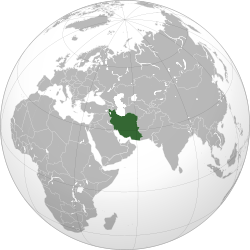EU Agrees To Talk Again With Iran On Nuclear Dispute
By EurActiv
(EurActiv) — Chief negotiators for the EU and Iran agreed on Thursday (2 August) to hold more talks about Tehran’s nuclear work, but the European Union gave no sign progress was imminent in the decade-long dispute.
Six world powers, represented by EU foreign policy chief Catherine Ashton, have sought to persuade Iran to scale back its nuclear program through intensifying economic sanctions and diplomacy.

They have failed to reach a breakthrough in three rounds of talks since April. But neither side has been willing to break off talks because of concerns, in part, that this could lead to a new war in the Middle East if Israel attacked its arch-foe.
Any deals are likely to be struck only during political talks between Iran and the six – the United States, Russia, China, France, Germany and Britain. But the sides had been unable to decide when, or whether, to meet since diplomacy hit an impasse in June.
“I … have explored diplomatic ways to resolve international concerns about Iran’s nuclear program,” Ashton said in a statement after a phone conversation with Iran’s chief negotiator Saeed Jalili.
“I impressed the need for Iran now to address the issues we have raised in order to build confidence. I proposed, and Dr Jalili agreed, that we talk again after further reflection at the end of the month.”
Since political talks reached an impasse in June in Moscow, experts from the two sides have held technical discussions aiming to clarify aspects of Iran’s nuclear work, which the world powers fear aims at producing weapons. However, the technical talks have produced scant results, diplomats say.
Tehran says its program serves peaceful purposes only. At the core of the discussions are Iranian efforts to enrich uranium to 20 percent fissile purity, an advance that would bring it close to acquiring weapons-grade material.
World powers demanded during this year’s talks that Tehran abandon such production, ship stockpiles out of the country and close an underground facility where high-grade enrichment takes place. Tehran has refused to meet the demands unless economic sanctions are lifted.
Political tensions have been rising in the meantime, with Israel warning visiting U.S. Defense Secretary Leon Panetta on Wednesday that time was running out for a peaceful settlement to the nuclear dispute with Iran.
Sanctions pressure increased this week when the U.S. Congress overwhelmingly passed a new package of sanctions against Iran that aims to punish banks, insurance companies and shippers that help Tehran sell its oil. That followed an EU embargo on Iranian crude put in place at the start of July.
